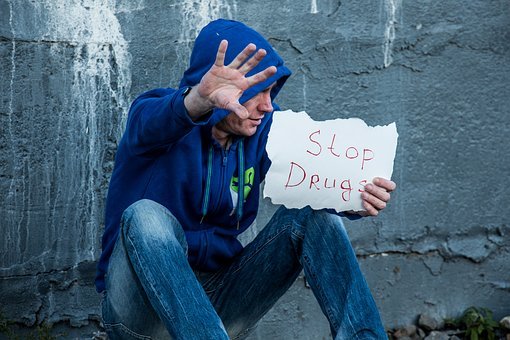Addiction Recovery, The Long Journey From Intervention To Rehab

Drug Or Alcohol Addiction Treatment Can Save Lives
Addiction recovery can be a very strenuous, difficult battle for both the individual dealing with the disease and their loved ones. As a matter of fact, the initial step in the journey toward recovery is usually initiated by the addict's loved ones in the form of an intervention. If the intervention is successfully performed it will lead to the addicted person receiving the help he or she so desperately needs.
Preparing For The Intervention
Any intervention should be performed as quickly as possible in order to help the person recover from their addicted state of mind .Friends and family should use due diligence and never wait for the moment when the addicted person reaches rock bottom. At that crucial stage it may be too late. The very harmful effects of addiction , such as financial ruin, loss of family, imprisonment, and even death, could have already taken control of the addict's life. The sooner the intervention process begins , the more pain and suffering can be eliminated .
An intervention is one effective method family and friends can utilize to persuade the person they cherish to seek the help they so desperately need. In order for the intervention process to be a success , family and friends definitely need to first comprehend how to effectively communicate in a language the addict can relate to .
This dialogue includes being completely up front with the person suffering from an addiction. By communicating openly and honestly with the individual about the effects their addiction is having on those around them is often the eye-opener the person desperately needs in order to see clearly enough to receive treatment .

Creating Intervention Structure
There is no secret formula for the number of people needed to orchestrate an effective intervention. In addition to the primary interventionist, there can be as few as one additional person or as many as six to eight. What is extremely important is that the addicted person loves or has deep respect for each of the participants. .
In addition to family and friends potential participants of this very important team may be teachers, clergy, lawyers, and doctors. Anyone that may have a positive impact on the addict's overall mental and emotional state of mind should be allowed to participate in the intervention.
There are numerous key components to an effective intervention:
- All family members and loved ones should be provided with an equal opportunity to voice their concern over the addicts behavior in a passionate and loving manner
- Information/education should be provided on the characteristics of addiction
- The enabling behavior that has occurred during the progression of the person’s addiction should be discussed
- The addicted person & possibly some family members should be directed to receive immediate treatment.
If the intervention is seen to be successful the addicted individual can be moved seek the help they need the very same day. To accomplish this goal ,however each team member must be willing to work in unity toward a common objective and to be properly educated in the execution process of an intervention.
Finding Assistance for an Intervention
It is known that some families and loved ones choose to execute an intervention without the help of professional guidance . In the majority of cases, however, it is suggested to involve the expertise of a seasoned interventionist or a drug rehab center to assist in the development of an intervention plan. The professional interventionist or rehab center can assist the team in learning how to achieve a common goal and how to utilize language the addicted person will comprehend . At the same time this professional instruction will help prevent the crisis from escalating out of control.
Usually the people who are performing the intervention are concerned that the addicted person will walk out in the middle of the intervention. Although this rarely happens, it is suggested to have a contingency plan in the event this does occur. Generally, the recommended course of action is to have one or two members of the intervention group follow the individual in order to calmly convince them to return.
Locating The Rehabilitation Center
The primary goal of an intervention is to persuade the person to get the assistance they need with their addiction whether its alcohol or drugs . Therefore, it is suggested to already have a rehab center chosen that is ready to admit the addicted individual . Even if no staff member from the rehab center participates in the actual group intervention, the center should have awareness of the team's planned commitment . The worse case scenario, besides having the addicted person refusing help altogether, is not to have any location for the person to go for treatment after an successful intervention .
After choosing a rehab center for the addicted person , it is important to consider what rehab center is best suitable to their individual needs . This may involve the types of programs available , the location of the rehab center, and the planned treatment used by the center can all have an influence on the recovery process . The rehab center will have to be provided with the addicted person’s personal history as well . This includes drug, family, medical and psychological histories. It is best to work closely with the rehab staff before the intervention to ensure that the correct rehab center is selected.